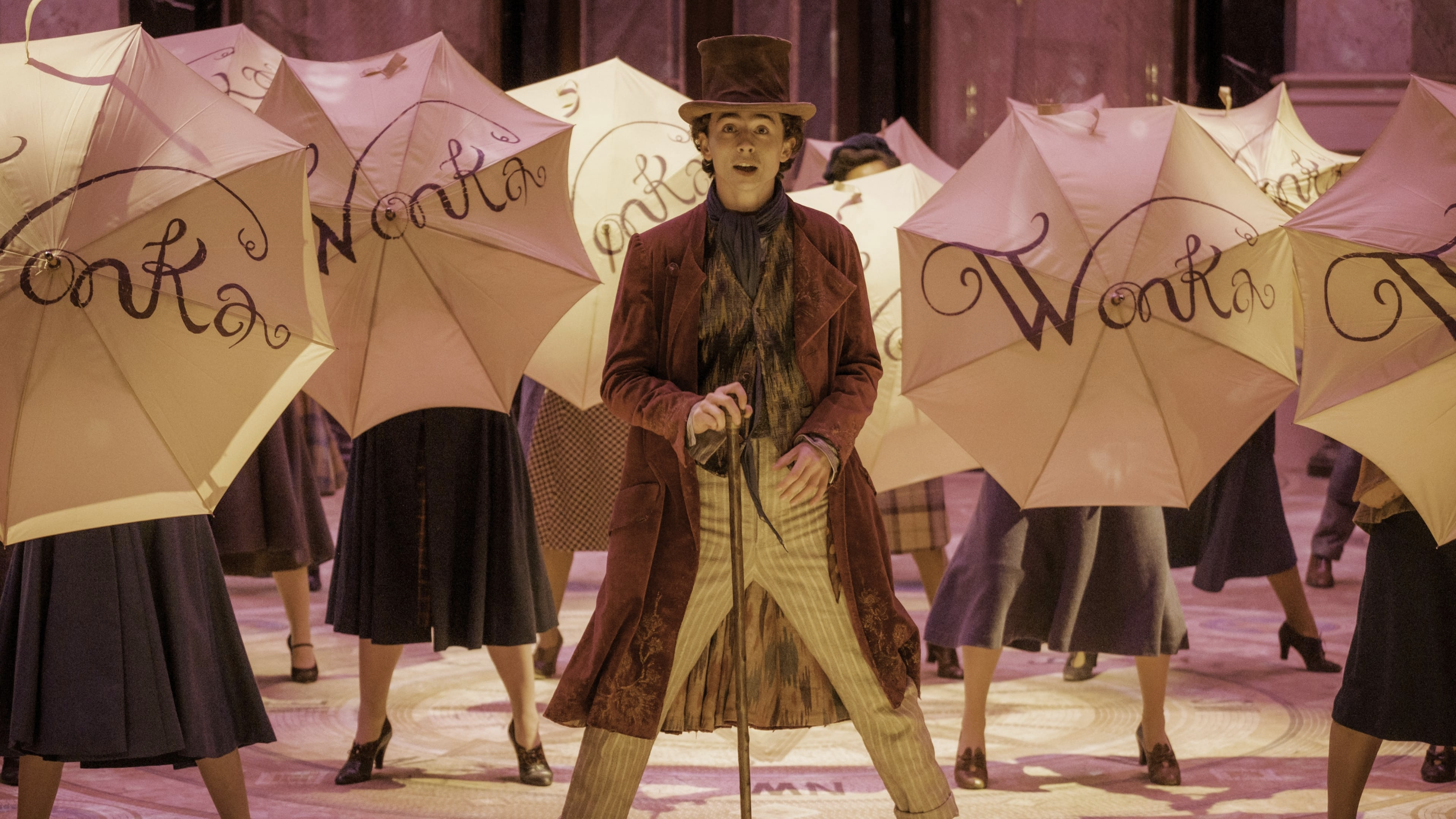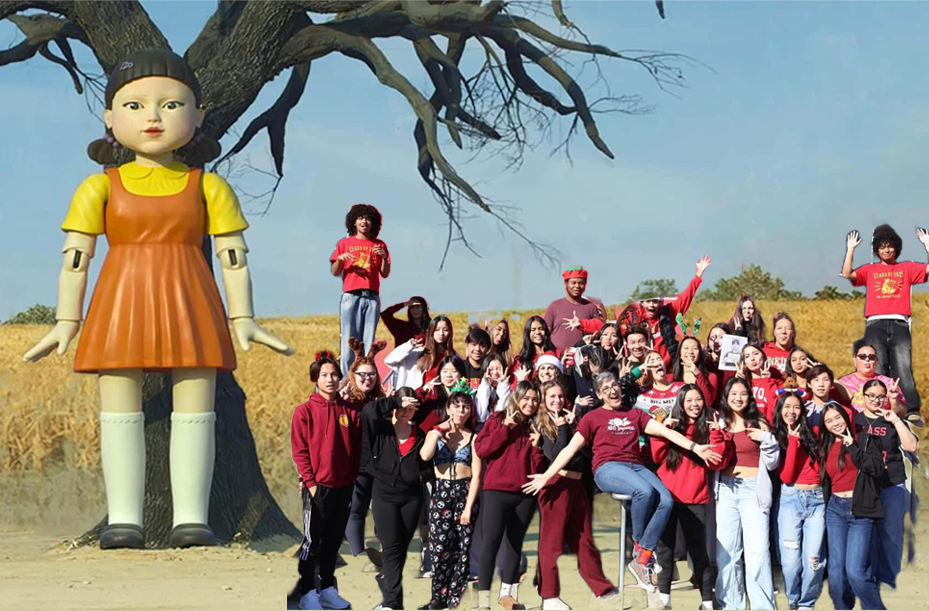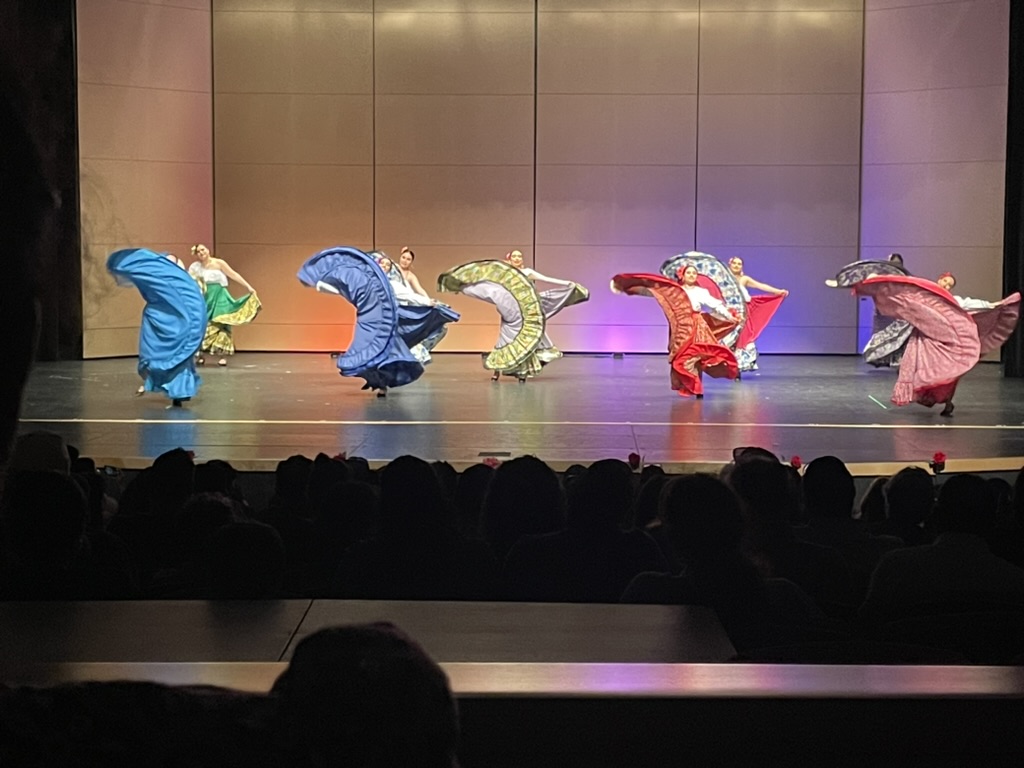
By Phoebe Piserchio; Editor-in-Chief
In a world where the screens are dominated with sequels, superheroes, and blockbuster explosions, the musical genre has struggled to find its own spotlight. Recent releases, including Wonka (2023) and Mean Girls (2024), both feature captivating melodies, and yet the term “musical” is absent from their promotions. Because this has caused confusion throughout audiences, the following question has been asked: Are movie studios scared to advertise their musicals as musicals?
Taking a closer look at the theatrical release of Mean Girls (2024), which is a movie adaptation of the Mean Girls Broadway musical, many people assumed it was just a remake of the iconic 2004 film. Videos taken by audience members have been shared all over social media, revealing audible shock and even disappointment when characters break into song– a surprise that could have been avoided with more transparent marketing. Based on the trailer alone, the new Mean Girls movie does, in fact, look to be just a reboot. The only hint to its genre is a small music note hidden in the title. This false advertising has led to absurd complaints such as there being “excessive music” in the musical film.
Similarly, Wonka (2023), released last December, offers minimal singing and dancing in its trailers. According to the Hollywood Reporter, one studio executive revealed that, “If you spell out the word musical, people have pre-formed opinions. Musical has a connotation that [characters] are going to sing every word, and audiences can be turned off.” In other words, studios shy away from promoting these movies as musicals due to the preconceived notions that come with the word “musical.” However, the industry’s reluctance to embrace the musical label raises even more questions about the balance between marketing strategies and audience expectations.
Now turning to The Color Purple (2023), which is a new movie based on the 2005 Broadway stage musical adaptation of Alice Walker’s novel, this actually was marketed as a musical. Critics and audiences alike praised the film for its artistic merit and outstanding performances by the stellar cast. Unfortunately, while the movie opened with $18 million on a $90 million budget, it did not do exceptionally well at the box office. This could, of course, be due to poor marketing strategies outside of the fact that it’s a musical. Despite its financial struggles, it succeeded in delivering what audiences were promised– a musical. The movie’s clear marketing allowed viewers to align their expectations and have a more satisfying experience, unlike Wonka and Mean Girls, where ambiguity left audiences confused and disappointed.
At the end of the day, the goal for audiences should be to go into a movie theater and see what they hope for. While there is such a thing as pleasant surprises, the risk of ending up with more disappointment than satisfaction looms large, especially if we’re talking about the main factor of a movie: its genre. To put it in perspective, one would be quite distressed to find that they’re watching a horror movie instead of something that was marketed as a comedy.
Acclaimed films like La La Land (2016), West Side Story (1961), and Moulin Rouge (2001), were all nominated for Best Picture at the Academy Awards. These musical masterpieces not only met but exceeded expectations set by the musical genre, demonstrating that honest and transparent marketing is not necessarily an unsuccessful route. So, perhaps some authenticity in advertising can lead to a more immersive and satisfying theater experience after all.







